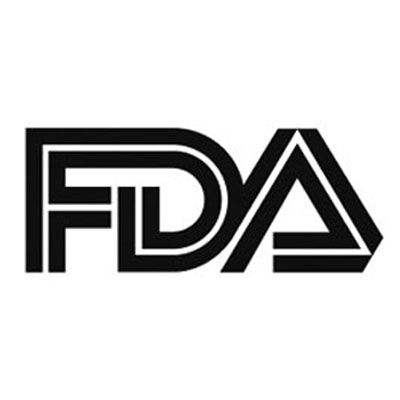FDA Approves First Companion Diagnostic Test for Expanded EGFR TKIs in NSCLC
The FDA has granted approval to the cobas EGFR Mutation Test v2 as a companion diagnostic for EGFR tyrosine kinase inhibitors as treatment of patients with EGFR-mutant non–small cell lung cancer, which is the first assay approved for this indication.

The FDA has granted approval to the cobas EGFR Mutation Test v2 as a companion diagnostic for EGFR tyrosine kinase inhibitors (TKIs) as treatment of patients with EGFR-mutant non–small cell lung cancer (NSCLC), which is the first assay approved for this indication, announced Roche, developer of the test, in a press release.1
This assay will be used as a companion diagnostic for all 5 FDA-approved EGFR TKIs that target EGFRL858R mutations and EGFR exon 19 deletions, marking this as the first liquid biopsy test approved for expanded EGFR TKI therapies in NSCLC. This indication also allows for the assay to be used for any future EGFR TKIs that may become approved by the FDA that target the same mutations without requiring individual clinical trials with the test for each new treatment.
“Clinicians can now have greater confidence in the robustness, reliability and proven clinical utility of the cobas EGFR Mutation Test v2 when evaluating lung cancer patients who may benefit from targeted EGFR TKI therapies,” said Neil Gunn, head of Roche Sequencing Solutions, in a statement. “By approving a single test for a broad group of therapies, this new and innovative approach by the FDA can pave the way for future EGFR TKI therapies to utilize the cobas EGFR Mutation Test v2 to help identify patients for personalized medicine.”
The test is a real-time polymerase chain reaction (PCR) test for qualitative detection of 42 EGFR mutations across exons 18 through 21 in patients with NSCLC. These mutations are detected with DNA isolated from either formalin-fixed paraffin-embedded tumor tissue or circulating tumor DNA from plasma derived from ethylenediamine tetraacetic acid anti-coagulated peripheral whole blood.2
In multiple clinical trials, the assay has been validated as a companion diagnostic for EGFR TKI therapies in both the first-line and the second-line settings for advanced NSCLC.
One such study looked at the detection of EGFR mutations in patients with lung adenocarcinoma with various PCR-based assays, and the repeatability of these tests in daily practice.3 A total of 345 samples were analyzed with the cobas EGFR Mutation Test v2 and 103 with the Therascreen EGFR Plasma RGQ PCR Kit. The cobas test was found to be superior to the Therascreen assay and showed 100% reproducibility.
These FDA-approved EGFR TKIs include osimertinib (Tagrisso), erlotinib (Tarceva), gefitinib (Iressa), afatinib (Gilotrif), and dacomitinib (Vizimpro). Gefitinib and erlotinib are first-generation EGFR TKIs, while afatinib and dacomitinib are second-generation agents and osimertinib is a third-generation EGFR TKI.
References
- Roche receives FDA approval for the cobas EGFR Mutation Test v2 as the first companion diagnostic test for expanded EGFR TKI therapies in patients with non-small cell lung cancer. News Release. Roche. October 29, 2020. Accessed October 30, 2020. https://bit.ly/3kMDyso
- cobas® EGFR Mutation Test v2. Roche Diagnostics. Accessed October 30, 2020. https://bit.ly/31Xofpq
- Heeke S, Benzaquen J, Hofman V, et al. Critical Assessment in Routine Clinical Practice of Liquid Biopsy for EGFR Status Testing in Non–Small-Cell Lung Cancer: A Single-Laboratory Experience (LPCE, Nice, France). Clin Lung Cancer. 2020;21(1):56-65.E8. doi:10.1016/j.cllc.2019.07.010
Kim Evaluates New Regimens for EGFR+ Lung Cancer
January 20th 2025During a Community Case Forum event in partnership with the Medical Oncology Association of Southern California, Edward S. Kim, MD, MBA, discussed the FLAURA2 and MARIPOSA trials of newer regimens for EGFR-positive lung cancer.
Read More
Amivantamab/Lazertinib Maintains OS Benefit in EGFR+ NSCLC
January 15th 2025During a Case-Based Roundtable® event, Joshua K. Sabari, MD, continued discussion of key outcomes from the MARIPOSA trial and toxicity management in patients with EGFR-mutated non–small cell lung cancer in the second article of a 2-part series.
Read More